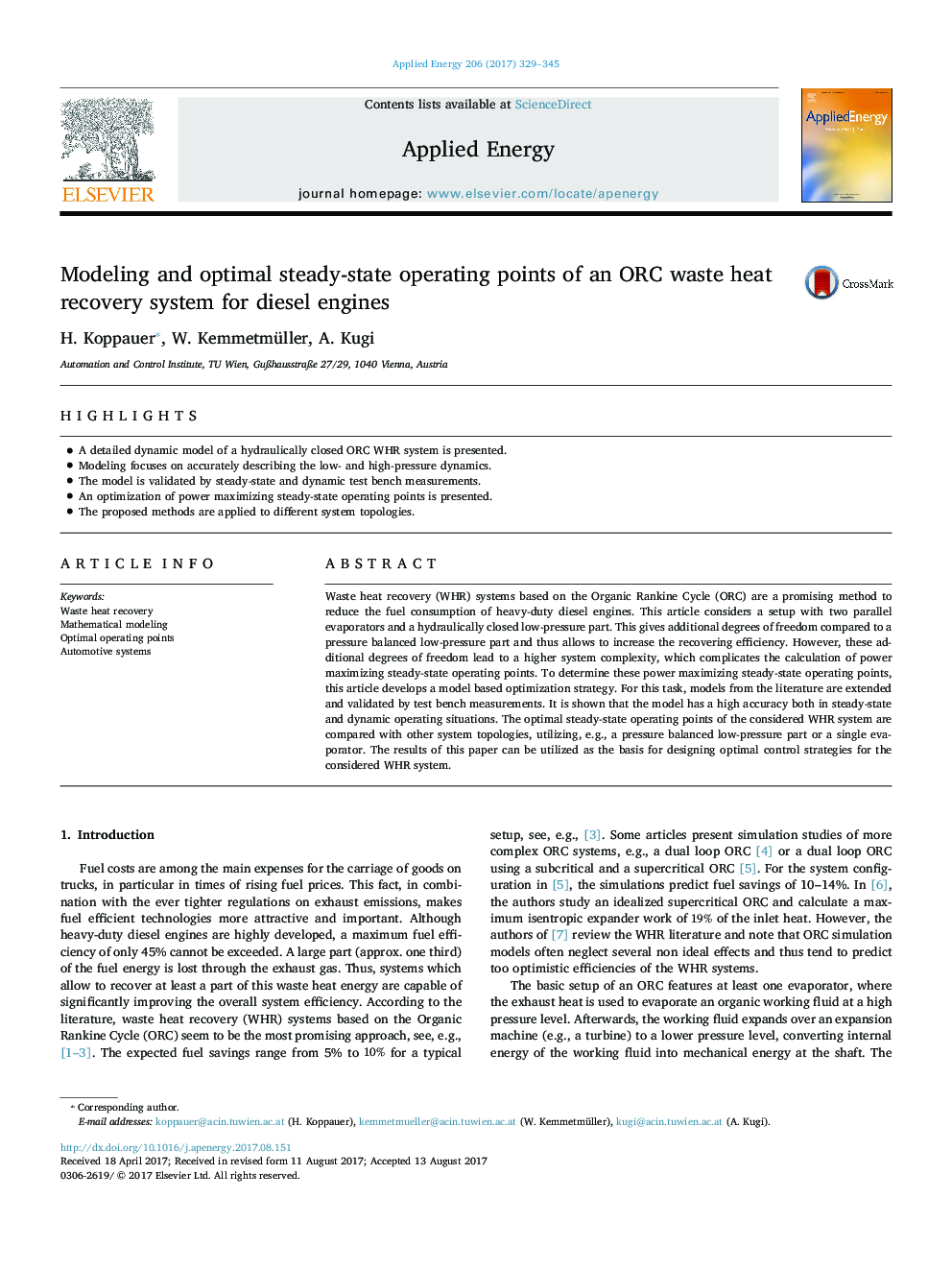| Article ID | Journal | Published Year | Pages | File Type |
|---|---|---|---|---|
| 4915681 | Applied Energy | 2017 | 17 Pages |
Abstract
Waste heat recovery (WHR) systems based on the Organic Rankine Cycle (ORC) are a promising method to reduce the fuel consumption of heavy-duty diesel engines. This article considers a setup with two parallel evaporators and a hydraulically closed low-pressure part. This gives additional degrees of freedom compared to a pressure balanced low-pressure part and thus allows to increase the recovering efficiency. However, these additional degrees of freedom lead to a higher system complexity, which complicates the calculation of power maximizing steady-state operating points. To determine these power maximizing steady-state operating points, this article develops a model based optimization strategy. For this task, models from the literature are extended and validated by test bench measurements. It is shown that the model has a high accuracy both in steady-state and dynamic operating situations. The optimal steady-state operating points of the considered WHR system are compared with other system topologies, utilizing, e.g., a pressure balanced low-pressure part or a single evaporator. The results of this paper can be utilized as the basis for designing optimal control strategies for the considered WHR system.
Related Topics
Physical Sciences and Engineering
Energy
Energy Engineering and Power Technology
Authors
H. Koppauer, W. Kemmetmüller, A. Kugi,
